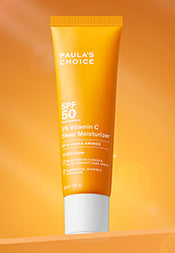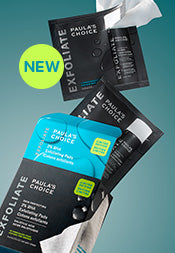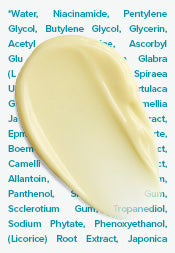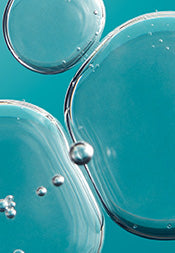Does Zinc Help With Acne?
When it comes to acne, the trace mineral zinc may prove helpful in preventing or lowering active acne breakouts!
But first, a bit of history: the zinc/acne connection was first made in the late 1970s, when researchers noted that study participants with acne tended to have low levels of zinc in their bodily fluids (bodily fluids other than blood, as blood tests alone aren’t helpful for determining zinc levels), while participants with minimal to no acne had normal levels of zinc.
As the study progressed, it turned out that taking zinc supplements led to a visible improvement in acne for many of the zinc-deficient people, establishing zinc’s role as a potential acne-fighter. How great is that?!
But how does zinc work as an acne treatment? How much zinc do you need to use to see effects, and how can you safely weave it into your skincare routine? Can controlling acne be as easy as taking an oral zinc supplement, or do you need a specialised zinc cream for acne, too?
The answer is a bit complicated, so bear with us: The research, while encouraging, isn’t as conclusive as it might seem.
How much zinc should you take for acne?
We know for sure that oral zinc supplements tend to work better than topical acne skincare products that contain zinc, in any form (cream, liquid, or gel) or any concentration. Here’s where things get complicated: There’s disagreement regarding which form of zinc supplement is best and how much someone with acne should consume for visible results.
No matter which zinc supplement for acne you’re considering adding into your daily routine, be sure to consult your healthcare provider beforehand. Only a small amount of zinc is needed to see anti-acne effects according to the research; taking amounts greater than 30mg per day can also lead to side effects like an upset stomach and nausea.
For zinc to work as an acne treatment, it must be “bioavailable” so your body can use it. Among the types of zinc supplements typically discussed, zinc orotate, zinc methionine, and zinc acetate are generally the preferred versions.
On the other side of the debate, the supplements zinc gluconate and zinc sulphate have contradictory research; some studies show zero improvements in acne, while others result in noticeable improvement.
Adding to this positive, yet complicated, research about zinc supplements for acne, is the frustrating fact that not everyone who experiences acne breakouts will respond favourably. Board-Certified Dermatologist Dr. Corey L. Hartman concurs, “results are highly variable for acne therapy” – pointing to the highly individualised nature of skincare.
How zinc works for acne when applied to skin
Exactly how zinc works when applied to skin still isn’t fully understood. What’s thought to be happening is that forms of zinc, such as zinc sulphate or zinc acetate, inhibit certain enzymes and “rogue” fatty acids in the skin that fuel the growth of the bacteria that trigger acne. In this way, it disrupts the conditions where acne-causing bacteria can grow, preventing an acne breakout from happening. Zinc also seems to have a balancing effect on the skin’s microbiome, helping to keep the mix of good and bad microbes in harmony.
It’s also been theorised that zinc reduces signs of acne because of its potent antioxidant and calming ability on the skin. Acne is an inflammatory disorder, so anything you can apply to minimise inflammation is a good thing. At the very least, topical zinc might minimise acne-related redness even if it doesn’t fully prevent acne from appearing.
Both topically and internally, zinc seems to also play a role in controlling oil production, possibly because it lowers the amount of the male hormones (androgens) that play a pivotal role in causing acne and oily skin regardless of gender.
However, just as with oral zinc supplements, there is disagreement on what type of zinc works best for the skin. Research has shown that applying various forms of zinc to skin tends to work only when coupled with topical antibiotics prescribed for acne. There are studies showing that topical zinc applied alone does little to nothing for acne, but when combined with an antibiotic, the results are still noticeably better than applying the antibiotic alone.
Interestingly, comparative studies have consistently shown that an acne skincare product with benzoyl peroxide improves all aspects of acne better than zinc combined with a topical antibiotic. This brings us back to the basics of acne management and conventionally accepted acne treatments, making the zinc topic somewhat moot.
Food sources of zinc
Your diet may already be providing enough zinc to combat your acne concerns, so take that into consideration if you’re considering a zinc supplement. Generally, meat-eaters tend to get plenty of zinc, while vegetarians and vegans get much less.
The reason? Those who don’t eat meat or animal foods tend to consume more beans and whole grains. Both are great, but they contain ingredients called phytates, which bind with minerals, including zinc, during digestion, causing it to be eliminated from the body before it can do much good.
Here are the top food sources of zinc to consider instead of a supplement:
- Oysters (very high in zinc, so these would be an occasional treat)
- Beef
- Crab
- Lobster
- Pork loin
- Chicken (dark meat has more zinc than white meat)
- Cashews
- Chickpeas
- Oatmeal
- Swiss cheese
- Milk and yoghurt
If you are planning major changes to your diet as part of an anti-acne treatment, we suggest consulting with your doctor or a medical professional beforehand.
Zinc oxide for acne
Zinc oxide (the kind of zinc found in diaper rash creams as well as sunscreens for your face) is sometimes touted as being a good type of zinc to apply to acne-prone skin. But there’s simply no research proving its worth as an acne treatment.
If anything, zinc oxide’s natural consistency could make it a potential pore-clogging ingredient that could worsen breakouts; however, whether it will have this effect depends on how the zinc oxide is formulated.
For example, the types of zinc oxide used in sunscreens are typically “wrapped” in other ingredients that improve application and keep the zinc oxide on the skin's surface to protect it from harmful sources of light. In this situation, it can’t get inside the pores where clogs start, which makes modern-day sunscreens with zinc oxide a good choice as both sun protection and anti-acne treatment even if you have breakout-prone skin.
Learn more about how to get rid of acne and other common facial skin concerns.
Shop online at Paula’s Choice Singapore and discover our range of skincare products for oily skin.
References for this information:
Dermatologic Therapy, November 2020, ePublication and January 2018, ePublication
Advances in Dermatology and Allergology, April 2016, pages 81–86
Cochrane Database Systemic Review, January 2016, pages 15–16
Dermatology Research and Practice, July 2014, pages 1–11
BioMed Research International, July 2014, ePublication
The Journal of Dermatological Treatment, Volume 17, Issue 4, 2006, pages 205–210









